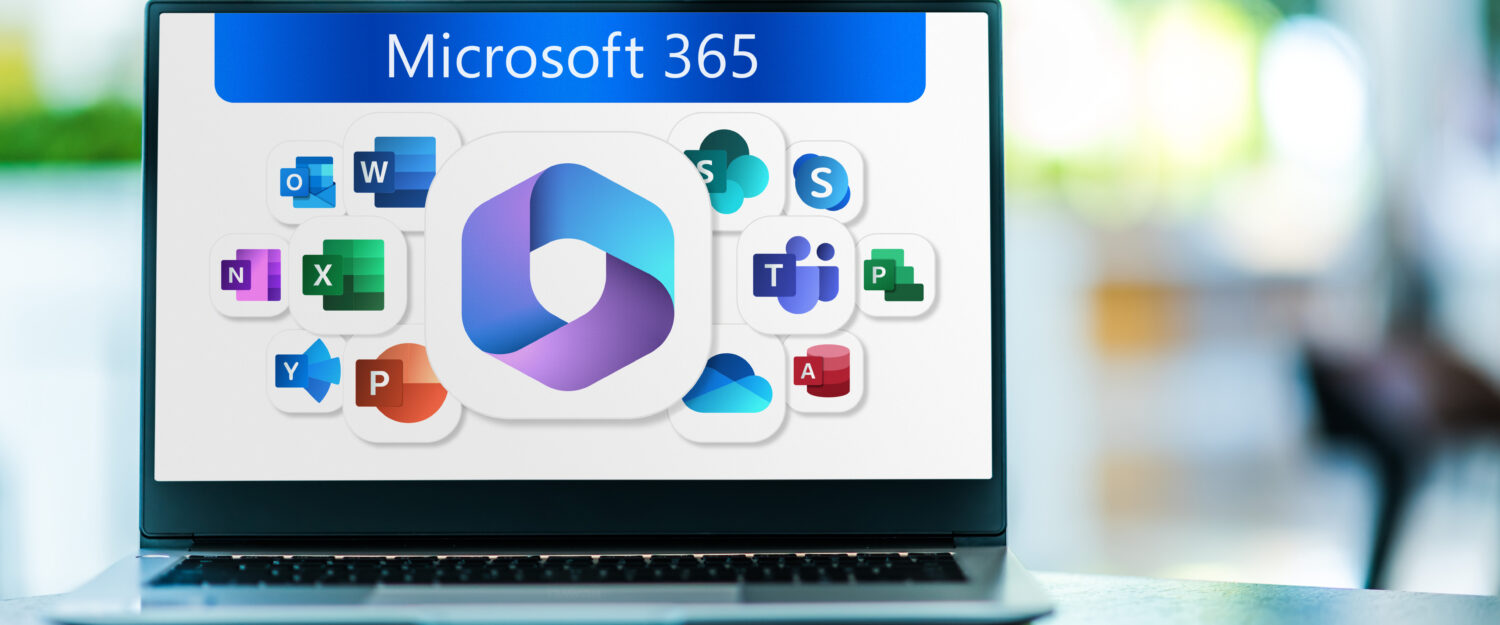In the era of remote and hybrid working, productivity suite applications have become increasingly popular amongst businesses.
These applications are known for facilitating project management, collaboration and teamwork. Companies have invested in productivity suite apps to enhance efficiency amongst their staff, regardless of where they are working.
And there are two main industry players they are likely to have chosen between: G Suite and Microsoft 365. These are both SaaS platforms that can promote productivity, but they also have distinct functionalities.
For many people, Microsoft 365 is the leader due to its familiarity and connectivity.
In this blog, we outline the benefits of choosing Microsoft 365 over G Suite.
What is G Suite?
G Suite is a combination of software created by Google for business. More recently, it has been renamed to Google Workspace. It comprises of a suite of applications such as Gmail, Docs, Sheets, Forms and Calendar.
Users get access to features such as online storage, email messaging, shared calendars and video meetings. In short, Google Workplace provides small businesses with the necessary tools to operate, using Google’s infrastructure and solutions.
What is Microsoft 365?
Microsoft 365 is a Modern Workplace solution that gives your business integrated access to popular tools like Outlook, Word, Excel, OneDrive, SharePoint, Microsoft Teams and more.
The agile features of Microsoft 365 ensure that it caters to both remote and hybrid working environments.
Its components are designed for ease of use and efficiency. So, by choosing it for your organisation, your employees will easily be able to access files, communicate and collaborate from any location.

Why migrate from Google Workspace to Microsoft 365?
There are various benefits of migrating to Microsoft 365 from Google Workspace. Microsoft 365 has innovative and enhanced security features to improve the cloud functions of your business.
This comprehensive solution also gives your organisation a competitive edge, through its productivity and storage features.
Here are five reasons why you should consider migrating to Microsoft 365 from G Suite:
1. Improved convenience
Microsoft 365 is made up of applications with cloud abilities, meaning they function even when offline. This provides enhanced ease of access while allowing staff to work from any location. It allows you to access and store files, even on the move.
Apps such as Teams, PowerPoint, Excel, Word and SharePoint operate in an interconnected manner to assist with user experience and end-to-end interactions, on and offline. This will ensure productivity, despite location barriers that may exist across teams in the modern workplace structure.
Recovery features are also available in the event of any mishaps or disasters, allowing you to conveniently restore if the worst were to happen. Data and files stored within the cloud are backed up regularly for business continuity. Sensitive information kept on company or personal devices is securely saved in the cloud for emergency backups when needed, such as when devices are damaged or stolen.
2. Business-focused
Microsoft Outlook is one of the most widely used email platforms in the world. Beyond simply sending and receiving emails, features such as calendar appointments, task management, note-taking and filing have made Outlook the preferred choice among businesses.
Through its integration, Microsoft 365 allows business owners to perform all their related tasks conveniently, bringing Outlook together with the likes of Teams, SharePoint and OneDrive for seamless working.
Microsoft 365 also data storage and sharing options which can be key to success for teams worldwide. It’s easy to work together and drive output.
Google Workspace does not offer this advantage due to the limited integration within its software. As a result, inter-departmental collaboration becomes more difficult.
3. Enhanced interconnectivity
The Microsoft ecosystem comprises of powerful business applications that function together seamlessly while bringing unique features to the workplace. Programs such as Teams, SharePoint and OneDrive are all interconnected to promote collaboration and synchronisation across organisations.
In addition, both mobile and desktop applications can sync easily for work to be done on-the-go. Microsoft 365 enables users to share documents, mailboxes and calendars in real time. Although Google Workspace has sharing abilities, it does not have as large a capacity as Microsoft 365, so collaboration is limited.
4. Advanced security protection
Concerns surrounding cyber security are growing due to the changing developments on the technology front, such as AI and increased hacking attempts.
Fortunately, Microsoft 365 is accompanied with security features to ensure maximum user protection. It is governed by standards such as the ISO 27001, which are international standards that govern Information Security worldwide.
Its robust defence measures prevent cyber threats such as hacking, shadow IT, breaches, ransomware and phishing to devices and IT systems. The rollout of the latest Microsoft 365 features always requires the appropriate licensing and configuration options to enable full functionality, so you benefit from up-to-date security protocols.
Additionally, it offers programs like Microsoft Defender to protect the sensitive data and information of your business. DDoS (distributed denial-of-service) attack prevention and multi-factor authentication offer an added layer of protection for increased security. You will have the peace of mind to operate without any extra concerns for online safety.
Conversely, the parameters of G Suite have limited security features so your work documents will not receive the maximum protection.
It is pertinent to protect your IT infrastructure from the prevalent attacks that exist within the changing web scene. This is why you switching from G Suite to Microsoft 365 carries huge benefits.
5. Familiarity
The vast majority of us will have used Microsoft tools in the past. The applications within Microsoft 365 such as Excel, Word and PowerPoint are familiar and easy to use. As a result, internal and external processes are made seamless and efficient.
Google Workspace’s range of applications are not as familiar to users. By switching, you can make life easier for users and reduce usability barriers. You’ll also gain access to enhanced AI features across programs such as Teams, SharePoint and Outlook.
Start your move to Microsoft 365 today
No matter the size and requirements of your business, Microsoft 365’s tools and features are tailored to meet the unique specifications needed.
The scale of features the application offers are unrivalled and set to improve upon all areas of productivity.
By migrating to Microsoft 365 today, you’ll gain the rewards of increased convenience, familiarity, connectivity and security. Better yet, migration can be seamless when led by knowledge experts.
If you are interested in migrating from G Suite or Google Workspace to Microsoft 365, our expert consultants are on hand to provide advice and support.

